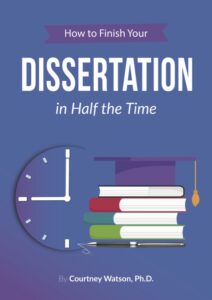When it comes to writing most academic manuscripts, dissertations, and theses, we end at the beginning: with the abstract. Don’t be fooled by the brevity of this section, though; it contains multitudes, and the entire ecosystem of that piece of writing resides within. Short and mighty, a good abstract packs a punch, and reading and writing abstracts is an essential skill for every scholar to master.
While abstracts are a researcher’s best friend because they allow you to sort through a lot of background material quickly, writing them is another story. Since abstracts are expected to accomplish so much in a small amount of space, they can be complicated to draft and tricky to write. Due to their inherent complexity, it’s a good idea to be prepared and fully understand the purpose and conventions of abstracts before you start writing.
These are a few commonly asked questions about abstracts:
- What is an abstract?
- What is the purpose of an abstract?
- How do I write an abstract in APA?
- What are keywords?
What is an Abstract?
An abstract is a brief summary of a research study that is intended for publication. The briefest section of an academic article, abstracts are generally 150-250 words (more or fewer depending on the publication) plus 5-7 keywords that function as search terms. The abstract is typically the first point of contact that readers have with an article (other than the title of the paper) when searching academic databases and compiling peer-reviewed publications to read about a topic of interest.

What an Abstract is Not
When discussing the conventions that define an abstract, it is equally important to be very clear about what an abstract is not. Many writers are often tempted to craft their abstracts to serve as a preview of coming attractions, designed to whet the audience’s appetite. This is a common, but misguided, instinct; an abstract is not a book jacket, nor is it a movie trailer, and if you write in that direction, your abstract will not fulfill its purpose.
An abstract is a summary. That’s it. I have worked with many graduate students who hesitate to write their abstract as a summary because they “don’t want to give anything away.” I get it. After all of the work that goes into researching, writing, and revising a dissertation or academic article, we want our readers to appreciate every nuance and insight that we painstakingly crafted. We want them to read every word, cover to cover. But that’s not how academic research works.
Purpose of an Abstract
When an academic article or dissertation is published, it enters the conversation and becomes part of the discourse. A well-written abstract is a comprehensive, succinct overview of a qualitative or quantitative research study or critical article, and it is designed to be reviewed quickly as part of a body of research. The reality is that months, or even years, of your research may end up as a footnote in someone else’s.
While I don’t enjoy writing abstracts, as a scholar I appreciate their utility. An abstract is a handy tool for evaluating a large volume of research and winnowing it down to the articles that I actually need to read. If my search in EBSCO or JSTOR turns up 100 articles relevant to my topic, reading the abstracts will help me pare the number of articles I need to examine in depth down to about 10. Abstracts help to make the research process manageable, so writing a good one is a true act of service.

How Do I Write an Abstract?
The structure of your dissertation offers the best formula for composing your abstract. Be sure to include essential information, such as the institution where your research was conducted, the size of your study, and any relevant limitations. Once you’ve established those parameters, outline the objectives of your dissertation using your chapters as a guide:
- Research Question What problem did your study tackle?
- Methods What research methods did you use to conduct your study?
- Findings Did your research result in any notable discoveries?
- Significance Why does this study matter? Does it offer insight into future research that needs to be done?
APA style requires abstracts to be written in past-tense paragraph form, generally with minimal or no citations. Abstracts should be double-spaced with Level I headings in a font consistent with the rest of the manuscript. Before writing your abstract, you may want to look at the abstracts in a few recently-published dissertations by graduates from your department. These will give you templates for structuring your own abstract.
When I am writing an abstract, I usually try to take a narrative approach, guiding the reader from the question that incited the research to the answer that resulted in a thorough but compact paragraph. It may take a few attempts, but you’ll get the hang of it. The most important thing to keep in mind when writing your abstract is to make it a clear and thorough representation of the work that you’ve done.

Keywords
APA requires keywords at the end of an abstract. They are single words or short phrases that are central to an article or dissertation and often repeated throughout the manuscript. The purpose of keywords is to aid in searches of academic databases. Keywords are the MVP of advanced searches by scholars who are looking for something specific, even if they’re not quite sure what.
For a recent article that I wrote about the role of writing and the humanities in graduate and undergraduate STEM programs, an area of study known as STEAM (science, technology, engineering, arts, and math), choosing keywords was a challenge. After all, how do you condense a 30-page article into 5-7 magic words that encapsulate your research? I recommend keeping it simple; I chose: writing, humanities, STEM, STEAM, and higher education.
While there are ironically no shortcuts to the briefest piece of your dissertation or academic article, learning to write a polished and effective abstract is well worth your time. In addition to being a helpful tool for academic research, a well-written abstract also helps to shape your perspective about your research. Your abstract also makes an excellent sound bite for quickly describing all the work you’ve done.






